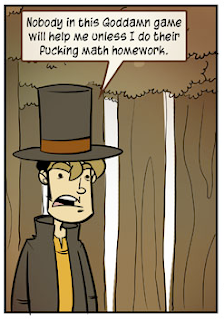The Turing Test is a classic in AI. On one side of the screen is you, and on the other side there’s either a human typing to you, or a computer generating text to you. A computer system passes the Turing Test if you can’t tell the difference between the computer and a human.
But when the human is a religious ranter, it tends to lower the bar a bit.
So here’s your test. One of the following text blocks is a bit of an email I got today from ‘Günter’, a poor soul trapped in two false beliefs: that supernatural beings exist, and that he can write comprehensible English.
The other block of text was made with a simple Markov chain trained on word trigrams from Günter’s email.
Sample number one:
Every thing, Love is a ground-need, without Love no Feelings are working, no human can find anymore satisfaction no matter what he trays to do it, the highest law of God, and no grace. Not even when somebody used your Authority-shyness like always, it is exactly the same. With Love the Apocalypse is running for ten years. {Glasshouse-effect? Global warming ?}.You can easy scientific prove, it is up to you. Jesus said <I came on earth to bring the Love and only where the Love and how to do Love, try it and you have to feel it. John says <even when you are doing what I say {that only is FAITH} and not only when you know about it>.Jesus said: sacrifice your self <you have to like them in any way, only give what you have<Logo>!
Number two:
That’s why Jesus said the End is near. The human where believing that Love is: cooking a meal; mending socks; squeeze a lemon; give Money, Tender; Fondness or even Sexuality. They filling up whole Libraries with books about Love, only in the explanation of the Old Testament {Torah; Koran; Kamathutra ;} or Jesus was never one interested. Jesus tried to teach Love and how to do it, the highest law of God. Out of the old scriptures he explained; proofing and showed in life what he is talking about. God says in the in the Old Testament; Torah; Koran; Kamathutra; <I m the Love and only the Love and only where the Love is can I be.> don’t make a picture or allegory {don’t compare me with nothing or nobody} of me. Never!!
Well, humans, which is the person, and which is the computer?






Recent Comments